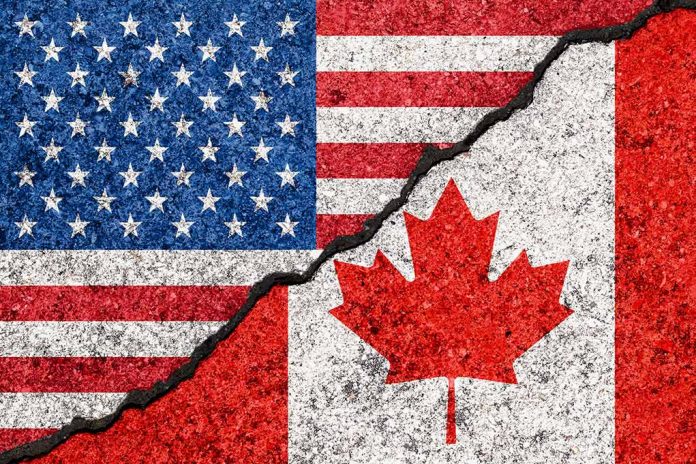
In the wake of Justin Trudeau’s resignation, newly elected Canadian Prime Minister Mark Carney seeks to reshape Canada-U.S. trade relations in light of President Trump’s auto tariffs.
Key Takeaways
- Mark Carney declared the end of Canada’s close economic and security ties with the U.S.
- President Trump imposed a 25% tariff on imported cars and parts, effective April 3.
- Carney plans countermeasures, stressing minimal impact on Canada.
- Trump and Carney are scheduled for their first direct conversation.
- Carney emphasizes reassessing Canada’s economic future.
Redefining Canada-U.S. Trade Relations
Prime Minister Mark Carney, responding to new U.S. tariffs, announced the end of Canada’s traditional deep economic and security ties with its southern neighbor.
Carney asserted, “The old relationship we had with the United States based on deepening integration of our economies and tight security and military cooperation is over.” His government is actively seeking to renegotiate trade terms post-Trudeau’s tenure.
Carney’s stance comes following President Donald Trump’s announcement of a 25% tariff on imported cars and parts. The move has stirred international concerns over its impact on global supply chains and consumer prices, triggering a response from Canadian leadership that emphasizes protecting national interests.
A Stance Against Unjust Tariffs
Mark Carney has criticized the U.S. tariffs as unjustified and contrary to existing trade agreements, vowing to take retaliatory measures with minimal repercussions for Canada. “We will fight the U.S. tariffs with retaliatory trade actions of our own that will have maximum impact in the United States and minimum impacts here in Canada,” said Carney. In a strategic move, he has convened provincial premiers and business leaders to formulate a robust response.
Trump’s policy targets sectors such as pharmaceuticals and automotives, with plans for further economic measures. Global reactions included condemnations from French President Emmanuel Macron and Germany’s Chancellor Olaf Scholz, highlighting potential adverse economic impacts.
Global Implications and Canadian Resolve
The tariffs have become a focal issue in Canadian politics. Opposition leaders have criticized the tariffs and offered solutions to support the Canadian automotive industry. Alongside, Carney seeks a mandate strong enough to navigate the economic challenges posed by U.S. policies.
As the U.S. looks to repatriate industries, dialogue between Carney and Trump is imminent. The emphasis remains on strengthening Canada’s domestic capabilities. Carney is maintaining confidentiality about the specifics of Canada’s response until further U.S. actions are clarified.


